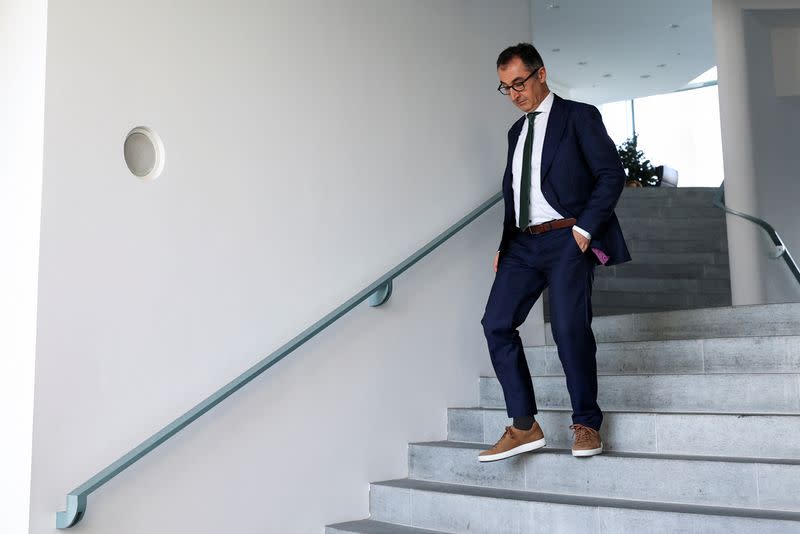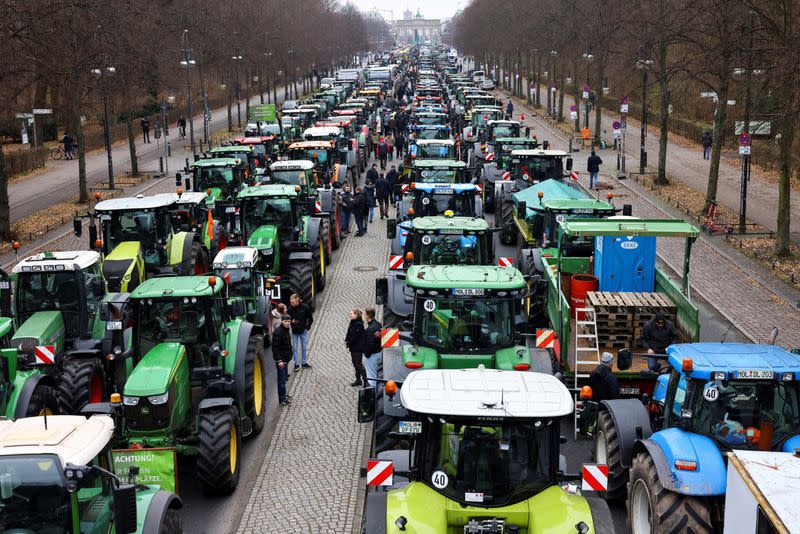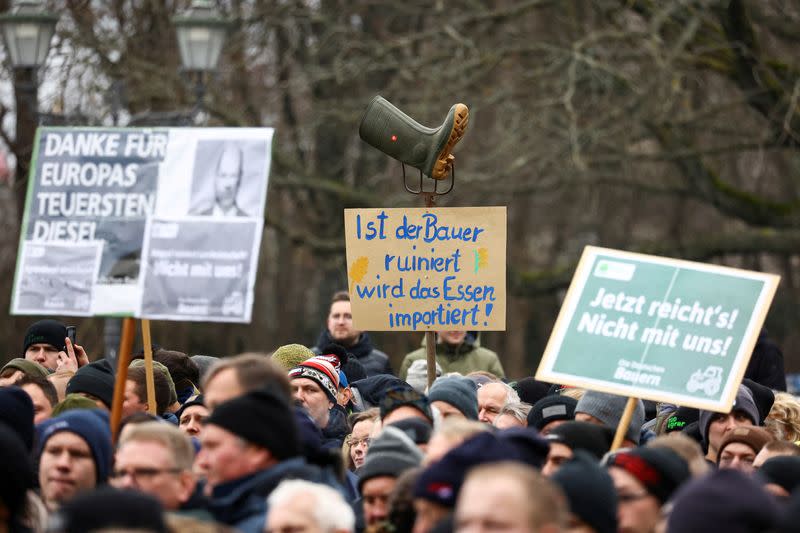Blockade of German minister's ferry sparks radicalisation concerns
By Christian Kraemer, Andreas Rinke and Miranda Murray
BERLIN (Reuters) -German leaders expressed concern on Friday that political debate in the country was becoming dangerously radicalised after a crowd of protesting farmers prevented the vice chancellor from leaving a ferry and tried to storm the vessel.
The blockade on Thursday by around 250-300 protesters was sparked by plans to phase out agricultural subsidies as the government scrambles to fix its finances after a court ruling in November threw its spending plans into disarray.
"What worries me is that the mood in this country is heating up so much," said Vice Chancellor and Economy Minister Robert Habeck, after the ferry on which he was returning from an island vacation in northern Germany was forced to turn around.
"As a minister, I have the protection of the police. Many, many others have to fend off attacks on their own and cannot share their uncertainty," he added in a statement.
Police said there were no arrests and the protest was largely peaceful except for when officers had to use pepper spray to stop some 25-30 demonstrators from storming the vessel.
A preliminary investigation has been opened, they added.
The heated mood is particularly of concern due to elections this year in three eastern states, according to government sources, where the far-right Alternative for Germany (AfD) party has been benefiting from the fallout of the budget crisis.
"I can imagine that there are a few individual political forces that are counting on an escalation," said government spokesperson Steffen Hebestreit at a news conference on Friday.
AfD party co-chief Alice Weidel said on X that the blockade showed citizens no longer take Habeck seriously. "And instead of seeking dialogue, he prefers to flee by ferry," she added.
Hebestreit also downplayed reports about insults being hurled at Chancellor Olaf Scholz during a visit to flood areas in the eastern state of Saxony-Anhalt the day before, saying it was a small group of out-of-towners who wanted to stir things up and in no way was comparable with Habeck's ferry incident.
Interior Minister Nancy Faeser said the blockade brought to mind the death of Walter Luebcke, a pro-immigration politician who was murdered by a right-wing extremist in 2019.
"We should never forget where political aggression can lead," Faeser told the Funke Media Group on Friday.
The incident came before the burial on Friday of former finance minister Wolfgang Schaeuble, who survived an assassination attempt in 1990.
The German Farmers' Association distanced itself from the blockade but said it was sticking with plans for more demonstrations next week in a push to keep the subsidies.
While there is no specific threat, right-wing extremists and anti-state actors will likely use the action to instrumentalise their own interests, said an interior ministry spokesperson.
A chorus of German leaders joined Scholz in condemning the blockade, with Agriculture Minister Cem Ozdemir, also a member of Habeck's Greens, saying the demonstrators did not care about the issue but only had "wet dreams of upheaval."
Ozdemir said the government would press on with the subsidy cuts despite the protests. The government on Thursday diluted plans for the cuts but farmers say this does not go far enough.
Hendrik Wuest, of the opposition Christian Democrats, said the protesters overstepped boundaries and harmed what he said were the farmers' legitimate concerns, which he also shares.
(Reporting by Christian Kraemer, Writing by Miranda Murray, Editing by Hugh Lawson, Matthias Williams and Toby Chopra)

 Yahoo Finance
Yahoo Finance 


